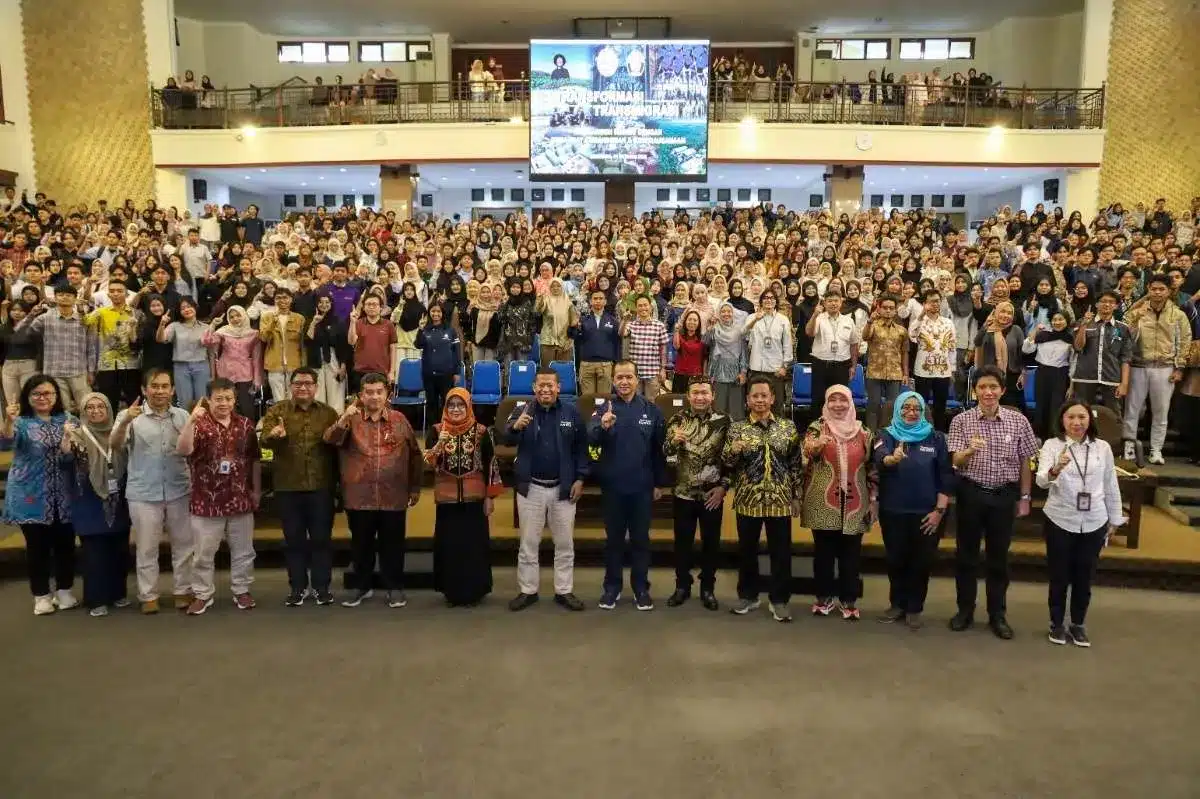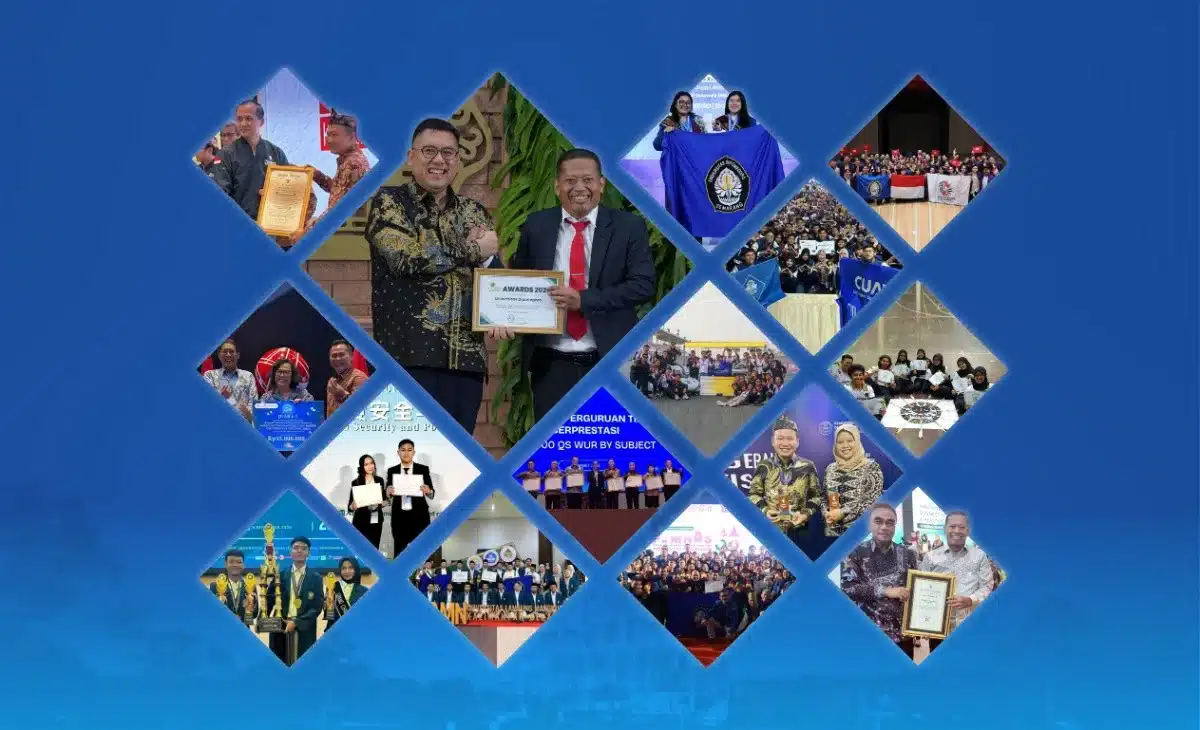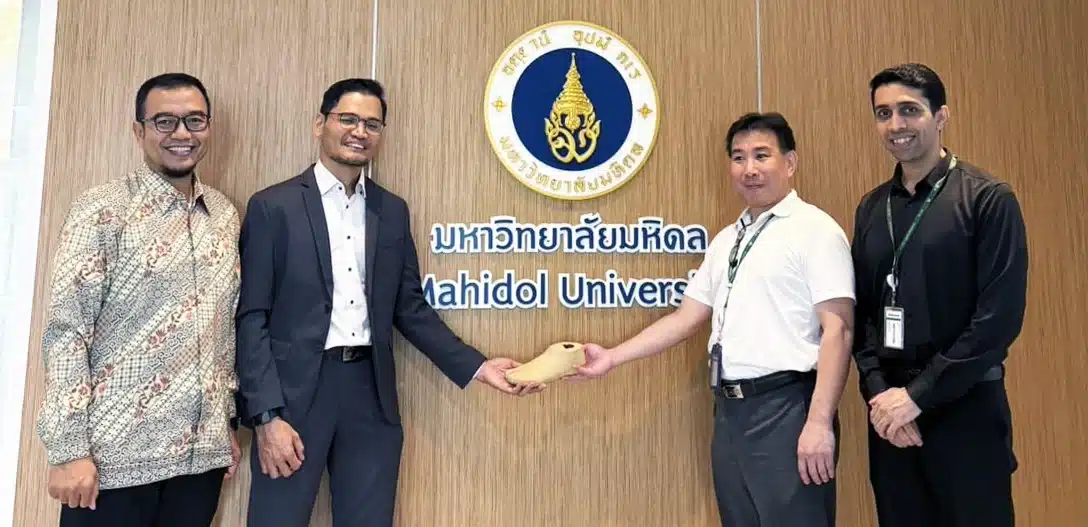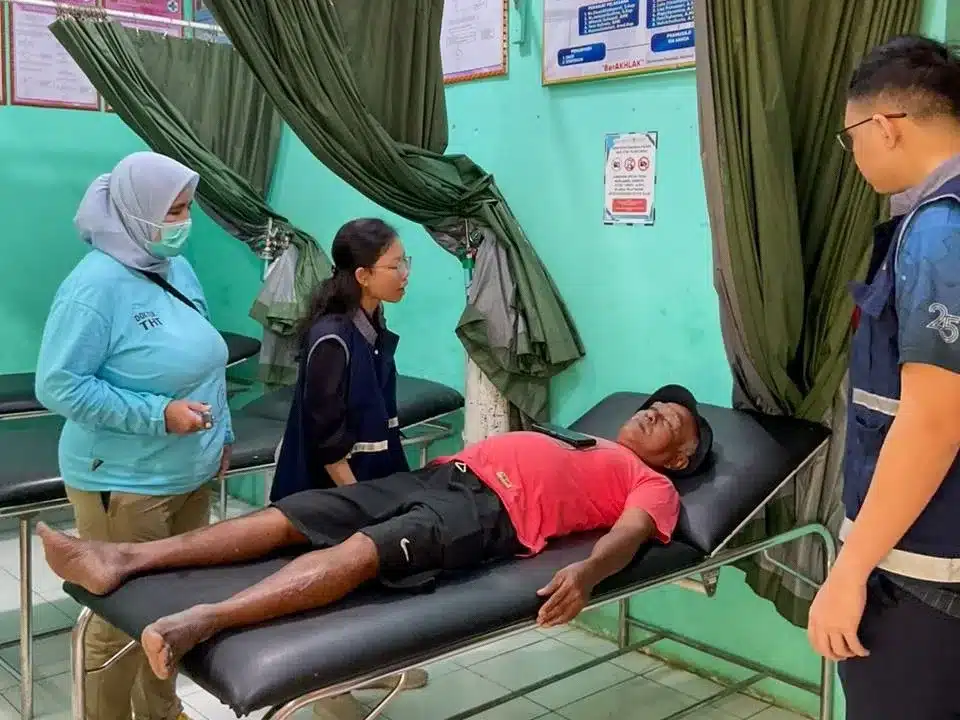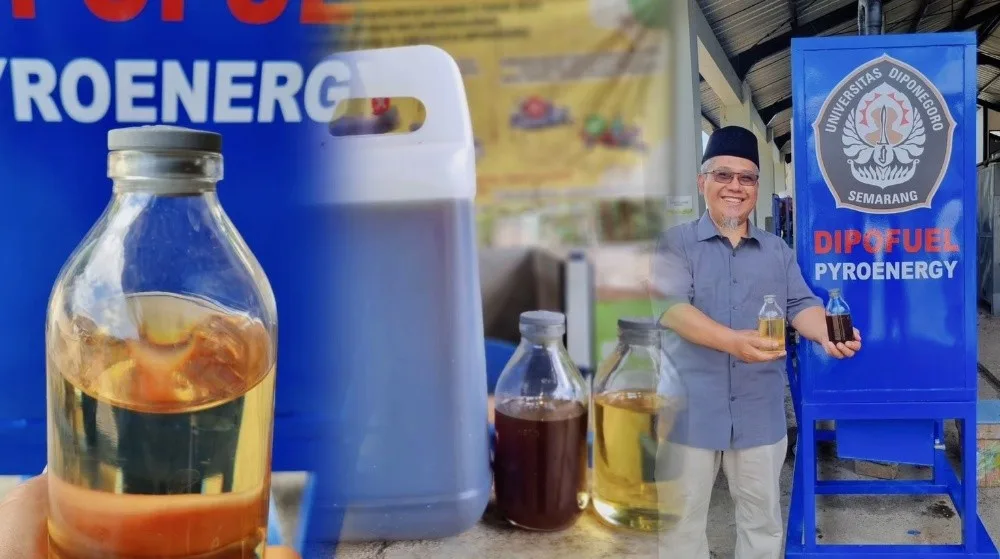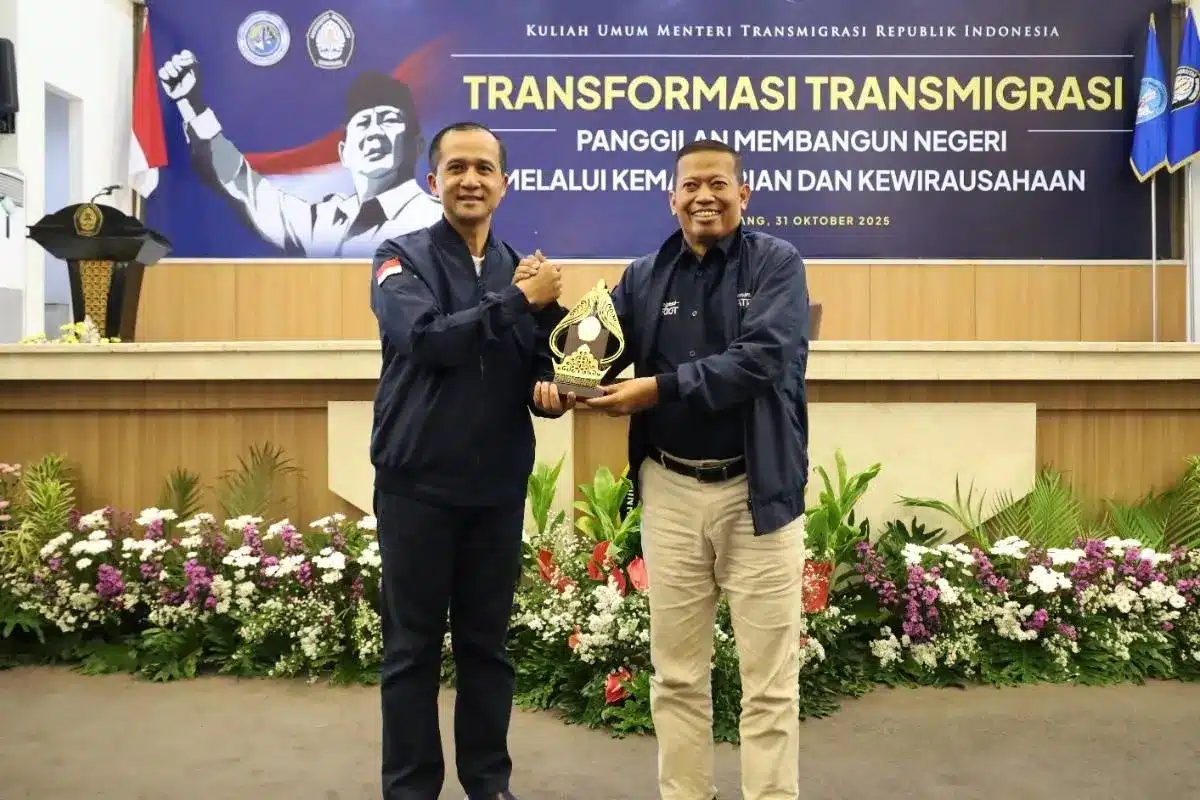UNDIP, Semarang (October 31, 2025) – Universitas Diponegoro (UNDIP) held a public lecture featuring the Minister of Transmigration of the Republic of Indonesia, Dr. M. Iftitah Sulaiman Suryanagara, S.H., M.A., with the theme “Transformation of Transmigration: A Call to Build the Nation through Self-Reliance and Entrepreneurship.” The event took place on Friday, October 31, 2025, at the Prof. Soedarto Auditorium, UNDIP Tembalang Campus, Semarang, and was attended by more than 900 students from various faculties across the university.
In his lecture, Minister M. Iftitah invited the UNDIP academic community to view transmigration from a broader perspective—not merely as population relocation, but as a process of social and economic transformation toward holistic and sustainable prosperity. He explained that a new paradigm of transmigration is being developed through the revision of Law No. 29 of 2009 on Transmigration, which now emphasizes improving the quality of life of communities.
“Transmigration should be seen as planned urbanization—an effort to drive economic growth in new regions through inclusive and equitable strategies,” said Minister M. Iftitah. He added that economic growth should not only be measured by export or investment figures but must also be reflected in increased purchasing power and local income.
He outlined five key pillars of transformation through transmigration: education of transmigration, industrialization, mechanization, diversification, and investment. The Ministry, he said, is committed to developing modern transmigration areas that not only provide housing but also education, health, and public facilities to support economic self-sufficiency.
The Minister also highlighted the success story of developing an industrial zone in Sumba Timur, which significantly reduced poverty through technology-based transmigration and effective management of local resources.
During the interactive session, Minister M. Iftitah encouraged UNDIP students to see transmigration areas as a living social laboratory. In this place, academic knowledge and research can be applied to address real development challenges. He concluded with an inspiring reflection, “The success of development is not measured by concepts and simulations alone, but by our ability to think and act concretely in the field to achieve equitable prosperity throughout Indonesia.”
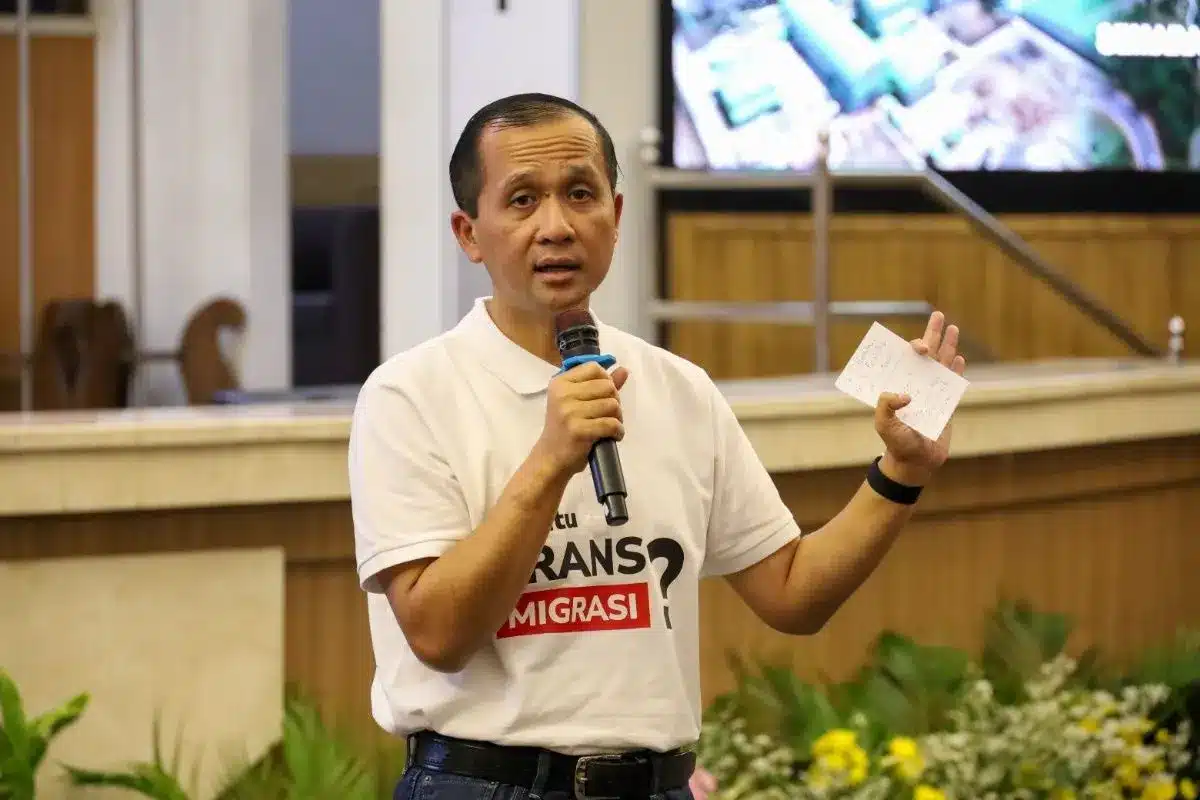
On this occasion, UNDIP Rector Prof. Dr. Suharnomo, S.E., M.Si., expressed his gratitude for the Minister’s visit and his appreciation for the inspiring session. He emphasized that collaboration between universities and ministries represents a tangible form of synergy between scientific knowledge and public policy for national development.
“What the Minister conveyed aligns perfectly with UNDIP’s vision as a noble and valuable university. Becoming a professor is important, but far more important is ensuring that the knowledge we produce brings real benefits to society. The best of people are those who benefit others the most,” said the Rector.
Prof. Suharnomo also shared several of UNDIP’s research and innovation achievements that have had a direct societal impact, including the development of desalination technology to convert seawater into drinking water, which is already being implemented in regions such as Brebes, Pemalang, Blora, Rembang, and Demak regencies. The innovation will soon be expanded to help island regions in Maluku, Kalimantan, and other coastal areas still struggling with access to clean water and energy.
“Research and innovation at UNDIP do not stop in laboratories. They are all directed toward addressing community needs and providing local solutions. The same spirit is fostered through the Patriot Expedition Program, designed to nurture resilient, self-reliant young generations ready to contribute to the nation,” he added.
As moderator, Prof. Dr.-Ing. Wiwandari Handayani, S.T., M.T., MPS, Professor of Urban and Regional Planning at the Faculty of Engineering and Coordinator of UNDIP’s Patriot Expedition Team (TEP), expressed her admiration for the Minister’s dedication and visionary leadership in transforming transmigration into an instrument for equitable development. She noted that this lecture served as a valuable opportunity for UNDIP’s academic community to deepen their understanding of strategic policies that have a direct social impact.
“We must seize this opportunity to learn from the Minister’s visionary ideas in building the nation through self-reliance and entrepreneurship,” she said. Prof. Wiwandari also mentioned potential collaboration between the Ministry of Transmigration and UNDIP, including the development of a Patriot Scholarship Program to expand access for outstanding students to contribute to transmigration areas.
Through this public lecture, UNDIP reaffirmed its commitment to being a strategic partner of the government in accelerating regional development through evidence-based research and community empowerment, supporting the Diktisaintek Berdampak program. This initiative also strengthens UNDIP’s contribution to the 17 Sustainable Development Goals (SDGs)—particularly in poverty reduction, economic resilience, and equitable development across Eastern Indonesia. (Public Communication/UNDIP/DHW)
